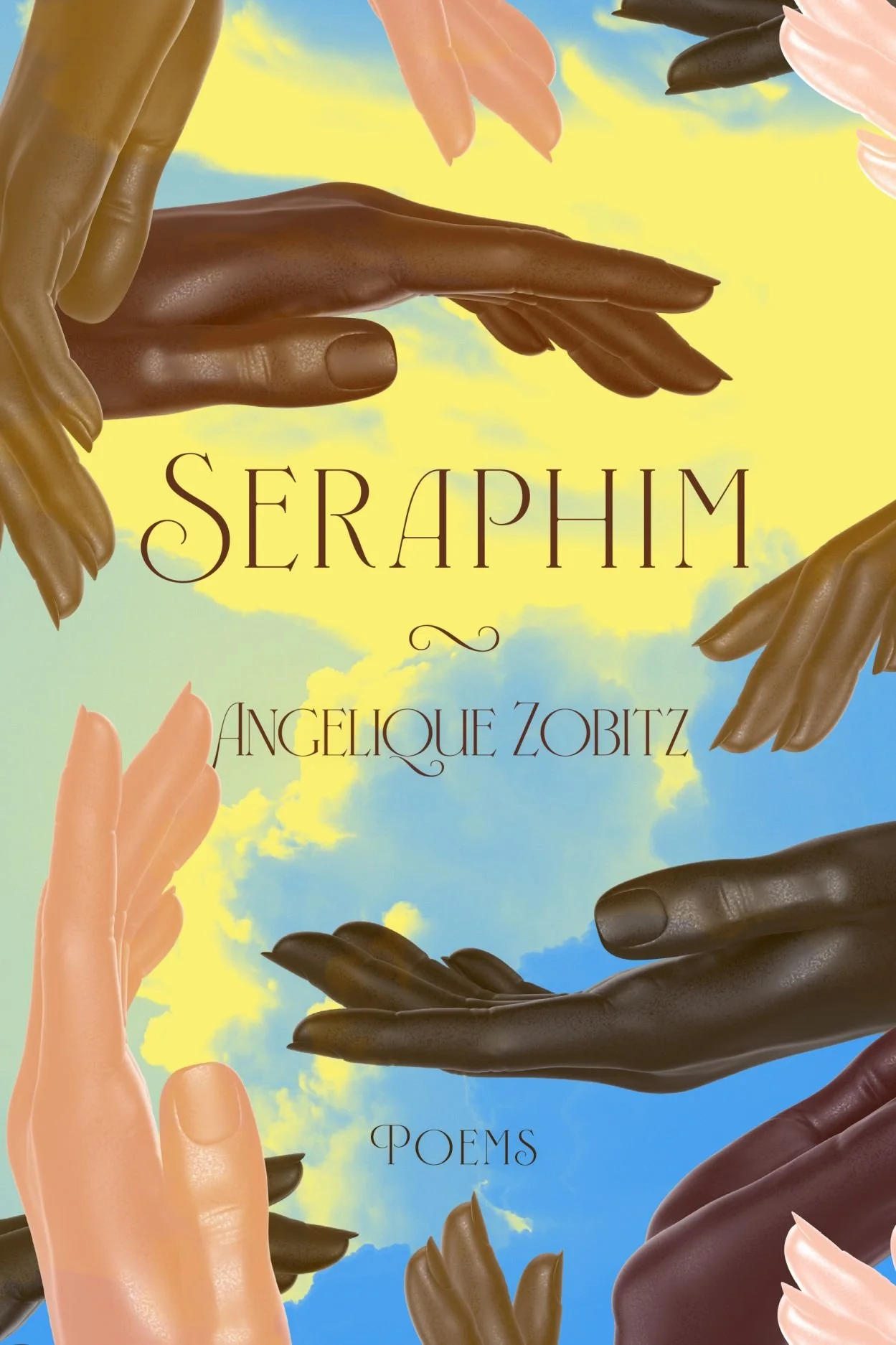Seraphim by Angelique Zobitz
Reviewed by Hiromi Yoshida
Seraphim, Angelique Zobitz’s first full-length poetry collection, captures the luminous rhythms of perception and memory. While many of these poems were included in Love Letters to the Revolution (American Poetry Journal, 2020), they are recontextualized in Seraphim among 27 other poems under the four subheadings: “And you are your mother’s child.”; “we sang the stars”; “imperfect yet unbroken”; and “lush & rain, bounty / in lean”.
In this collection, “Seraphim” are the beings that burn in the “unquenchable, changeless” radiance that signifies their “enlightening power” (Seraphim epigraph). In “Sister/Seraphim, Inextinguishable Light,” they are the “Black Barbies backlit by gas station fluorescence / stunning—singing holy, holy, holy.” Thus, the Seraphim are subtextually present throughout this collection, enabling new articulations of the convergence of the sacred and profane realms of experience.
Poems grouped under “And you are your mother’s child” address intergenerational connections between mother and daughter, grandmother and granddaughter, while offering glimpses of alternative mother figures like the dominatrix in “Kink Therapy, or an Alternate History of the World.” In all instances, the poet celebrates the power of these Black women, who are re-presented as boisterously angelic.
The poems of “we sang the stars” and “imperfect yet unbroken” continue to re-present the collection’s body/spirit, religious/secular polarities, while suggesting that even “flawed love” is redeemable. The stars in these poems are reimagined as captured fireflies, while in other instances, they can refer to celebrities like Roberta Flack, Megan Thee Stallion, Whitney Houston, and Alicia Keys. The implied subjects in these poems have yet to achieve the Seraphim’s perfected radiance. Even so, they betray the angelic tenacity of the “yet unbroken.”
Finally, poems in “lush & rain, bounty /in lean” suggest the fluidity of boundaries—geographic, bodily, or perceptual. The poetic speaker in “Wheel of Fortune” says: “And when I’m asked my story, / where do I begin—when the boundaries of / our countries are the lies?” Fluidity is not merely unsettling ambiguity throughout Seraphim. Rather, it is Black women’s triumphant resilience after the erasure of kindling and fire.
Hiromi Yoshida
Author of one full-length poetry collection and four poetry chapbooks, Hiromi Yoshida is a finalist for the New Women’s Voices Poetry Prize, and a semifinalist for the Gerald Cable Book Award. While serving as a poetry reader for Flying Island Journal, she coordinates the Last Sunday Poetry reading series for the Writers Guild at Bloomington. Her second full-length poetry book, Green Roses Bloom for Icarus, is forthcoming from Roadside Press in October 2024.



